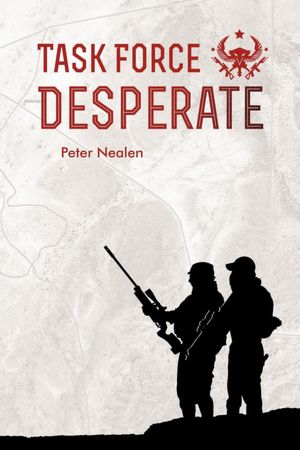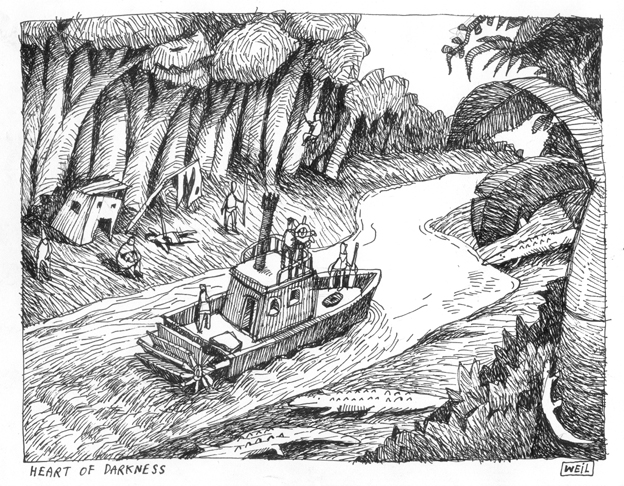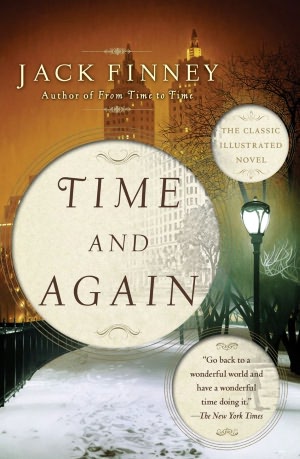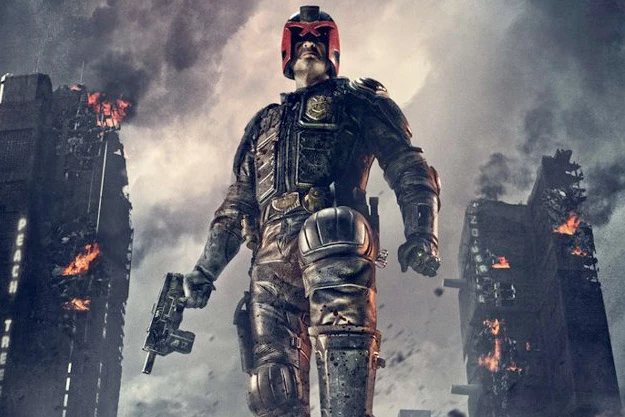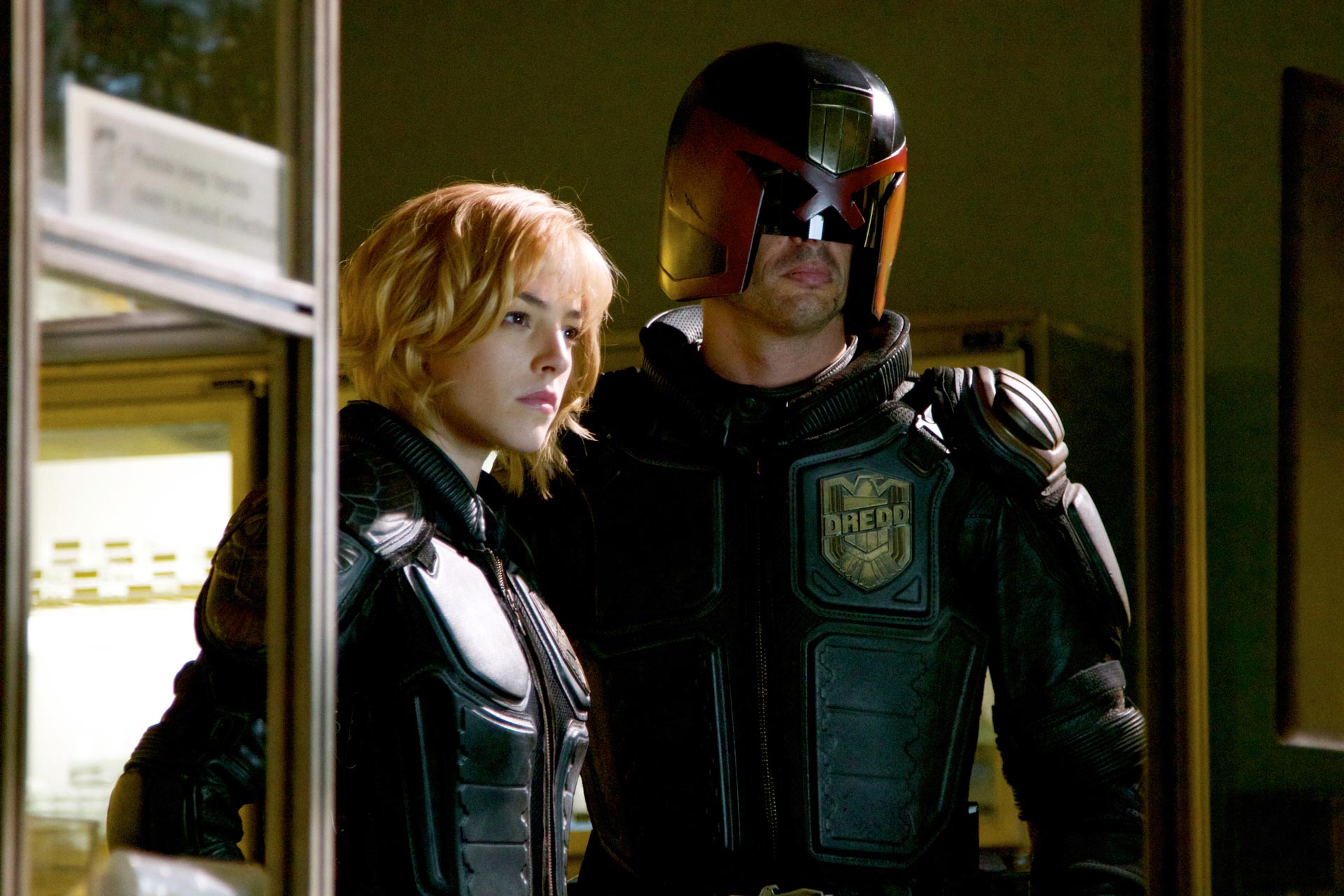"Ever since Robin Moore wrote that book, we'd been green-bereting up a storm." --Jim Morris,
War Story
Vietnam.
Just the mention of that geographic term is enough to spark controversy among people my age and older. Pretty much every adult I knew growing up had some sort of strong emotion attached to it. My teachers had protested the American deployment there; my parents had feared it; and once in a while I ran into someone who had been directly involved in it.
I think most people would agree the whole mess we call Vietnam was tragic (though my teachers/professors undoubtedly believed it had a happy ending since the Communists conquered the South and Vietnam has joined the number of Socialist dictatorships that American jobs are being outsourced to).
American veterans of the conflict certainly suffered, whether from combat wounds, Agent Orange, being spit on when they returned home and called baby-killers. But nobody suffered as much as the natives of Vietnam. I mean the Vietnamese, of course; but also the Montagnards and Nungs.
Jim Morris was in-country from early on, before the first conventional troops were deployed, until after the Tet Offensive (more on that later). As an officer in Special Forces, he bounced around quite a bit in South Vietnam, able to put both the forest and the trees of that conflict into a perspective that your average lowly grunt (or a REMF in Saigon, for that matter) could not--at least without years of investigative journalism afterwards, I'd bet.
From Lyndon Johnson on down, the prosecution of the Vietnam War was a confusing, convoluted, self-defeating debacle. But no more confusing or convoluted than politics, or life in general, for the people of Vietnam. In this autobiographical work, we get just enough of a snapshot of the situation over there to appreciate just how complex it was.
More than anything, though,
War Story is about a man whose chief aspiration in life was to be a soldier. While other young men were dragged to Vietnam kicking and screaming, or dodged the draft altogether, Jim Morris and other members of the Special Forces volunteered for Vietnam. Against his wishes, Morris was assigned jobs either in the rear or on Okinawa--jobs other men would have killed for. Still, he clawed and scratched his way back to the periphery of the conflict. Sometimes right into the hot thick of it--you can be certain that, unlike some who've attempted to parlay their service into political success, Morris
earned his Purple Hearts. In fact, Morris actually feared promotion beyond 0-3 (Captain), because it would nix his chances to command an A-Team.
In the author's own words: "I do not recall a moment in my life when I was not bored, before I got to Vietnam; very few since leaving there. Going to Nam was like trying on my first pair of glasses. Before the glasses I didn't know that other people could see clearly. Before going to Nam I didn't know that everyone wasn't paralyzed by boredom all the time. I suppose that in any well-ordered society people like us would be locked up or shot. But then you would have to get people like us to do the locking up and shooting."

Had there been more officers like this in my time, I might have held to my original plan of being a 30-Year-Man. Or at least 20. Morris was a soldier who cared about the mission, and wanted to make a difference, armed with ideas which could have done so. He worked within the system, but (and this is one thing I love about SF) wasn't obsessed with following counterproductive protocols, or eating cheese. He wanted to fight, and to win, while the average career officer just wants to kiss ass, shuffle paperwork, and admire rows of spit-shined boots and starched uniforms all perfectly dress-right-dressed.
But not only was victory not an objective for the US chain-of-command, the South Vietnamese weren't much interested in it, either. The ARVN (Army of the Republic of Vietnam) was infamous for its corruption and incompetence. It would be hard to name a military organization more rife with cowards, crooks, traitors and fools. Whatever good soldiers fought for the South were buried under bureaucratic BS.
Morris relates the story of how some loyal villagers reported six VC (Viet Cong) sighted in a certain ARVN officer's district. "Only one weapon between them." That ARVN commander could have captured them quickly and easily, possibly getting some valuable intelligence into the bargain. Instead, he sent the report up his ponderous chain of command. Three days after the VC left the village, an airstrike leveled it. That's how loyalty was rewarded. Any wonder why most of the Vietnamese citizens turned a blind eye to VC activity?
"All intelligence in Vietnam flowed up, and none flowed down to the people who could use it. But the maps in Saigon were gorgeous."
At one point, Morris compared two of the strategic maps available for MACV brass. One map showed the areas of VC/NVA (North Vietnamese Army) incursion from across the border(s), and the other showed the distribution of American base camps. In context, the latter made no military sense. Had nobody ever thought to make this comparison? Morris didn't like camps, but still, armed with this information, he came up with a plan to interdict a high-traffic stretch of the Ho Chi Minh trail. You would think there would be an outbreak of forehead-smacking among the high command, and a rush to act on this info and hurt the enemy in a big way. Fortunately, Morris showed his discovery to Colonel Ludwig Faistenhammer--another officer who considered it his job to fight and win. Here's Morris' own words about this man:
'There
weren't many like Ludwig. He was the character Fritz Scharne in Robin
Moore's The Green Berets. It was the story of how he managed to ambush a
VC battalion commanded by a Frenchman... It was such an improbable story that I asked him if it was
true. He said it was. "I lay awake nights dreaming up ways to get that
son of a bitch," he said. Part of how he set him up was by feeding him
false information while playing tennis with him at the Cercle Sportif in
Saigon.'
The next camp was, in fact, set up right in the notch Morris identified, though he never did get the command there.
As Morris hops around South Vietnam in
War Story, you might want to follow along on a map. Having never been there myself, I was unfamiliar with the geography and sometimes grew confused about where he was and when he had been there before. The command structure on both the American and South Vietnamese sides were equally cumbersome. Heck, it was a convoluted mess by WWII and has only gotten worse every decade since then.
In Morris' war novel,
Above and Beyond, he remarks upon some of the field-grade officers deployed in Vietnam that they were "trying to fight World War Two, but with helicopters." In my opinion, that would have been fine, had such sentiments gone straight to the top. After all, MacArthur conducted a successful jungle campaign some 20 years before, without helicopters. But then, victory was the objective at that time; the enemy wasn't allowed to hide behind "neutral" borders; and American commanders were not stifled with ridiculous rules of engagement. But, since kicking the enemy's ass back through North Vietnam and marching through Hanoi was not allowed, Johnson had shrunk the window for success to a very tiny aperture. This was the reality confronted by Morris and others who made an effort to win despite the limitations placed upon them.
"There is only one way to fight a guerilla war and that is to outguerilla the guerilla. You have to steal his political issues and his social issues and his tactics; and if you do that he has nothing left to sell and the war is won. It was so easy. Why couldn't the bastards see it? Maybe that was what made me not one of the boys: the fact that I moved around so much as a kid that I was highly sensitive to new social situations. That was what made me not one of the boys. Maybe I knew what I was doing and 'The Boys' didn't."
And Morris could certainly adapt to new social situations. He didn't just work with the 'Yards (Montagnards--ostracized mountain tribes of Vietnam), but made friends with them. He could make sense of their military and social network, and knew who could get the job done unclouded by the "all Dinks are the same" attitude held by some of the more condescending officers on our side of the fence. One such 'Yard comrade, nicknamed "Cowboy," is a fascinating enough character to warrant his own biography.
The author is not just a Special Forces officer who wants to do his part--he's a soldier, and likes being around other soldiers.
"One of the nice things about being around other soldiers is that they will suffer your bullshit gladly, knowing that sooner or later you will shut up and listen to theirs."
Amen.
I could go on at great length about this book and what I learned from it. I recommend that you just read it and let Morris' narrative speak for itself. Unlike some of my rants here, it is fairly devoid of politics. He mentions more than once his admiration for the VC he was fighting. But not because of what many assume--that the Cong were super-guerillas unparalleled in all history. Compared to the ARVN, any combatant would seem like a super-soldier. The Cong had their limitations, too (which were not exploited). The truth is, many factors worked in the VC's favor. And when Charlie bit off more than he could chew, the Press and the Johnson Administration came to his rescue, snatching defeat from the jaws of victory.
For the Tet holiday (Vietnamese New Year) in 1968, the Communists launched their most ambitious offensive of the war. They had conquered North Vietnam with a decisive victory over the French at
Dien Bien Phu, and now they imagined themselves ready to graduate from their guerilla campaign in the South and do the same to the Americans.
After the Tet Offensive, the news media declared the war "unwinable." With the protest movement back in the US threatening to become a war on the streets, and a Commander-in-Chief who was never committed to victory in the first place, the US caved in to these pressures and began to pull the troops out. Prolonged defeat became the official policy. Tet was what put the final nail in the coffin for any hope of even securing a stalemate as in Korea.
Rather than me pontificate on how the "battle for hearts and minds" was affected by Tet, I'll quote somebody who knew, and saw, and experienced what myself and the "experts" did not:
"These are the facts about Tet: The ARVN found itself during Tet. Units that had never fought well before, or thought about fighting at all, did a creditable job. Public opinion was mobilized against the VC for daring to profane the Tet holiday, and the cities were alienated, when before they had been entirely indifferent to the war except as a profit-making venture. Just in our own little area there, when the Mike Force, which was Montagnard, came through to mop up and check the place out, Vietnamese housewives who, two days before, wouldn't have walked across the street to spit on a 'Yard came out of their houses with tea and cakes for them and hailed them as liberators. Vietnamese actually feeding Montagnards. Tet was such a bad fuckup for the VC that it is scarcely describable, but the Press reported it the other way, and people believed it."
In other words, early in 1968, we had won the battle for hearts and minds that the Johnson State Department had been so fixated on.
How about the strategic picture? Tet was a military disaster for the Communists. What few tactical successes they enjoyed were minor, short-lived and earned at tremendous cost. Even as inept as US and RVN leadership in-theater had been, the VC got their asses kicked all over the map and were in sad shape to continue fighting afterwards. Had the NVA gone toe-to-toe with American forces during or afterwards, we would have won the war despite ourselves.
Morris himself was assigned to a REMF unit at the time of Tet, but he and those under him set out to join in the nearest firefight as if they'd learned of a nearby kegger and were crashing the party. While journalists were screaming "we're doomed!" to the folks back home, American fighting men were ecstatic that the VC were coming out for a stand-up fight. All over the country, VC were getting spanked.
Morris continued marching to the sound of the guns well after Tet, and during another firefight, while helping some wounded GIs get out of harm's way, he received the wounds that would send him home.
War Story doesn't spend any time justifying US intervention in Vietnam, or much time defining what was at stake. At its core it is the story of a soldier who wants to fight, and does so, in the only war that happened to be available. Obviously he was more than just a soldier, but a (at that time) new breed of elite warrior, heartbroken when forced to park behind a desk when there was fighting to be done. In just that respect alone it stands apart from most of the memoirs on Vietnam you may come across.
 Shotgun was a beagle. Why? Well, I learned a little about the breed some years ago. Despite their diminutive stature and stuffed-toy cuteness, beagles are hunting dogs. I've heard some folks say their noses are even more sensitive than a bloodhound's. With such an impressive scent-catching ability, I figured a beagle would be an interesting choice for a bomb-sniffing hound, which could be trained for other useful wartime tasks, as well.
Shotgun was a beagle. Why? Well, I learned a little about the breed some years ago. Despite their diminutive stature and stuffed-toy cuteness, beagles are hunting dogs. I've heard some folks say their noses are even more sensitive than a bloodhound's. With such an impressive scent-catching ability, I figured a beagle would be an interesting choice for a bomb-sniffing hound, which could be trained for other useful wartime tasks, as well.






